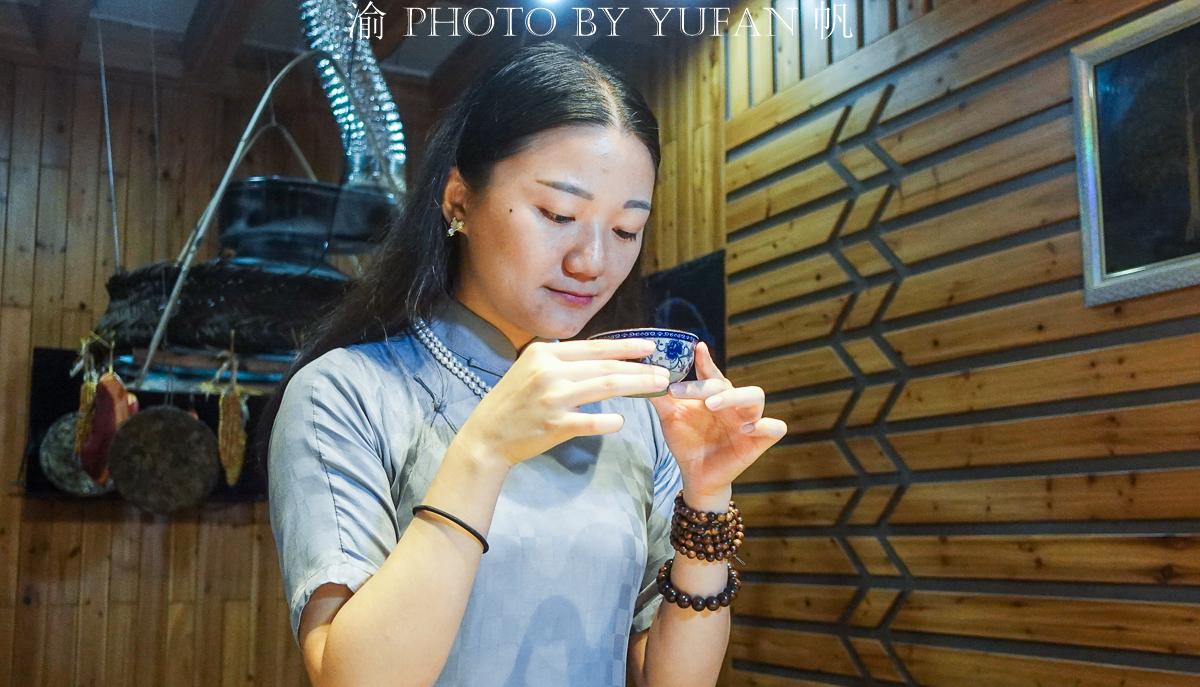
"Chai rice oil salt sauce vinegar tea", tea is one of the seven things that the people open the door, it is equal to the chai rice oil and salt, is an indispensable element in people's lives, in our country has thousands of years of history, according to historical data, tea plant originated in China, as early as 5000 years ago, our ancestors found that tea has detoxification effect. China is the homeland of tea, after a long historical trek, now tea has taken root in more than 50 countries around the world, tea has become one of the three major non-alcoholic beverages that have swept the world.
There are many types of tea, such as green tea, black tea, white tea, yellow tea, oolong tea and black tea, etc., while tea can also be matched with other ingredients, forming milk tea, medicinal tea, eight treasure tea, oil tea, etc., each place has its own tea drinking habits, but also has its own tea drinking culture. Some time ago, when we were traveling in Sanjiang, the northernmost part of Guangxi, a local friend invited us to taste a typical Sanjiang oil tea.
"Don't drink tea for a day, three days in a row", in the Dong family, oil tea has become an indispensable specialty food in daily life, and it is also a delicious soup for the Dong family to entertain guests. Some villages even drink at least three meals of oil tea a day, get up in the morning to drink oil tea and then go to work, come back from work at noon to drink oil tea and then eat lunch, and drink oil tea before cooking for dinner.
According to the local friend Sugar Thin Sister who invited us to experience oil tea, the Dong people have been drinking oil tea for thousands of years, and the oil tea brewed cold rice and sticky rice is the traditional drinking method of Sanjiang. As for the reason, she introduced it like this: because the Dong people have lived in alpine mountains for generations, the Dong oil tea can withstand cold and prevent diseases, and also has the effects of quenching thirst, refreshing the mind, and relieving fatigue.
Oil tea is available in many parts of the country, but Sanjiang's oil tea also has its own characteristics, and the practices are also diverse, both simple and exquisite, generally divided into four teas: one empty, two square, three round, four sweet. The so-called one empty, refers to the first course of oil tea has rice flowers, oil fruits, peanut rice and pork liver, lean meat, powder intestines; the second garden refers to the second oil tea on the basis of "one empty" added water garden; three parties, is on the basis of "one empty" to increase the cut into square grains of Dong; four sweet, let guests drink sugar water to moisten the throat, clear the mouth.
It is said that when the Spring Festival, March 3 and the various big events come, every household will boil oil tea to worship the ancestors, as well as invite relatives and friends to gather for tea and contact feelings.
When drinking tea, the host will accompany the Dong song and slowly taste it in a song and an answer, as if the joy, enthusiasm and happiness of the Dong family have melted into this bowl of hot and fragrant Dong family oil tea. Between bowls and bowls, you can also observe the passage of time and the rotation of the four seasons through the change of ingredients.
The production process of oil tea is not complicated, the basic raw materials are as shown above, such as Ningxia's Eight Treasure Tea, these materials can be increased and decreased according to their own needs, but the most important raw materials can not be less, such as tea and Yin rice, tea is the local alpine cloud tea, and Yin rice is first steamed glutinous rice into rice, Yin dry standby, it is Yin rice.
When playing oil tea, first put the yin rice into the boiling vegetable oil pot, fry it into a sweet and crisp rice flower shape, and then put a handful of sticky rice into the pot and fry until it is browned, then mix it with tea leaves for a while, add water to boil, filter it and become tea, add rice, green onion, ginger shreds, peanuts, soybeans, sesame seeds and other condiments, which is a delicious oil tea with full color, aroma and taste.
Not only the production process is exquisite, but also when eating, first eat a small half bowl of oil tea, only put some rice and peanuts, oil tea slightly bitter; the second bowl with more condiments, there are five or six plates of sauerkraut, sour fish, sour meat and beef bar for eaters to send tea; the third and fourth bowls are mainly soup gardens or rice flakes, if it is too late to make soup garden, rice instead, and then there are desserts.
The history of the Chinese tea ceremony has experienced the evolution of four tea drinking techniques: boiling, frying, ordering and brewing. "Cold night guests come to tea as wine", just as many places in our Han nationality use tea to receive visitors, the dong tea drinking culture has the same long history, but they are to play oil tea to entertain guests, which is similar to tea ceremonies such as bowl tea and kung fu tea.
In Sanjiang County, there are many long-established oil tea shops, if you come to Sanjiang, you can go to taste it, drink Dongjia oil tea, taste the national culture, feel the fun of the journey.